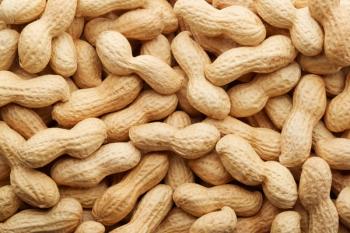
Updates
Varicella vaccination update * Goltz syndrome * FDA News * Global News
Varicella vaccination recommendations updated
On June 22, the Advisory Committee on Immunization Practices (ACIP) released its latest recommendations for vaccination against varicella (MMWR 2007;56(RR04):1). Healthy children should receive their first dose of vaccine at 12 to 15 months and the second dose at 4 to 6 years. A new recommendation requires a "catch-up" vaccination for teens who received only one dose as a toddler.
Other committee recommendations include: Vaccination of healthy persons older than 13 years without evidence of varicella immunity, prenatal assessment and postpartum vaccination, developing and enforcing school immunization requirements for all grade levels, including college, and single-antigen vaccination of HIV-infected persons with CD4+ T lymphocyte counts >15%. To read more about ACIP's guidelines, visit
Researchers from the Baylor College of Medicine have identified the gene that "accounts for most cases of Goltz syndrome, a rare skin disorder that can also affect bone and eye development." A defect in a gene on the X chromosome results in the absence of the PORCN gene that provides information needed to make a protein that's vital to the development of skin, skeleton, and eyes.
Also known as focal dermal hypoplasia, Goltz syndrome cases are seen mostly in females. It causes a "distinctive red rash and thinning of the skin, allowing fat from the tissue below to protrude and form small yellowish-white lumps." It can also cause brittle hair and nails, deformities of the hands, and missing or under-developed eyes. According to researchers, "mental retardation is seen in about 15% of affected patients." The study was partially funded by the National Institutes of Child Health and Human Development.
Global News
Effects of parental smoking on infants
Researchers who wanted to examine the effect of passive smoking on infants conducted a study to assess the level of cotinine (a metabolite of nicotine) in infants of parents who smoked (Arch Dis Child Fetal Neonatal Ed, Jun 2007; doi:10.1136/adc.2006.108506). The newborns were selected from a database of infants in developmental physiological studies that looked at the impact of various factors on early postnatal development. One hundred and four infants-71 of smoking parents and 33 of non-smoking parents-were assessed for cotinine excretion in their urine at approximately 12 weeks of age.
The results showed that on average babies with at least one parent who was a current cigarette smoker excreted 5.58 (95% CI: 3.4 to 9.5) times as much cotinine in the urine as did the babies of non-smoking parents. Maternal smoking was the largest contributing component; co-sleeping and minimum room temperature were also significant contributory factors. They concluded by saying that this accumulation of cotinine "may have a detrimental effect on the cardio-respiratory system."
Global News
Switzerland recommends Gardasil; UK undecided
Switzerland is recommending that girls ages 11 to 14 years of age receive Merck's and sanofi-aventis's human papillomavirus vaccine, Gardasil. The United Kingdom's Joint Committee on Vaccination and Immunisation is scheduled to decide on its recommendations about the vaccine as well. The HPV vaccine has been approved in many countries.
Newsletter
Access practical, evidence-based guidance to support better care for our youngest patients. Join our email list for the latest clinical updates.








